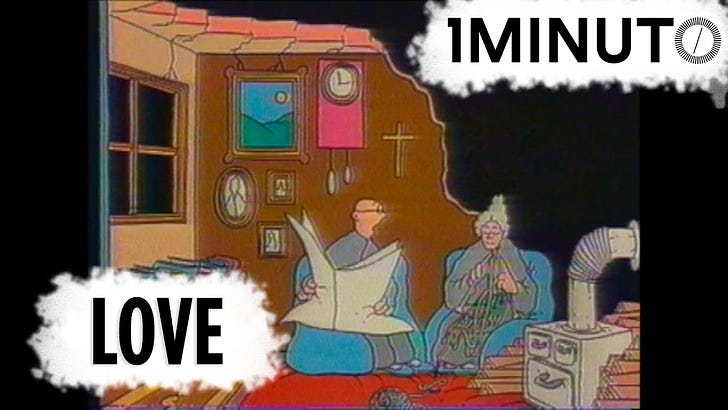Berislav Marušić (University of Edinburgh), "On the Temporality of Emotions: An Essay on Grief, Anger, and Love"
Oxford University Press, 2022
[Alt text: “Maria, I … (interrupted 4x by explosions) … Maria, I … I love you" // Maria: “I love you too”].
Grief passes, and that is somehow all right. Anger passes, and that is, at least sometimes, somehow all right. Yet what exactly makes it all right is puzzling.
The book aims to make sense of how it could be all right for grief and anger to pass, since the loss and injustice which they are responses to don’t change. Put differently, the book aims to make sense of accommodation—the fact that we are “wired” for loss, as George Bonanno, a leading proponent of the ‘new science’ of grief, has put it. We are wired for loss and for injustice, and we are socially situated to live with loss and injustice. This, I claim, bears on the reasonableness of grief and anger. However, it is puzzling how it could bear on it, since these emotions are not about ourselves—neither our wiring nor the ways in which emotions are socialized. Grief and anger are about loss and injustice. Hence, facts about how they are embodied in our lives are reasons of the wrong kind and, therefore, can only give rise to confusion. Nonetheless, I contend, the reasonableness of grief and anger is conditioned by the way in which we are embodied and socially situated, albeit in a way that we can understand only from a theoretical standpoint on ourselves. From the standpoint of the emotions themselves, accommodation remains incomprehensible.
Grief passes, and anger passes, and that is somehow all right. In contrast, I claim, love does not. We can see it in this way: It is not an empirical question for us how long we will love our children, our spouses, our parents. At least in the good case, we think of our love for them as having no end.
Yet that, too, is puzzling. How could we think of our love as endless, without thoroughgoing irrationality? I argue that this is because in loving someone, we apprehend them, the individual. And our beloved remains an individual through all her changes and transformations, even unto death. Since the temporality of love is inherited from the temporality of its object, we can be confident that our love will endure.
Are the two parts of the book consistent with each other? I leave it to readers to figure that out.
The book’s cover page is the work of Joško Marušić, my uncle, a well-known political cartoonist in Croatia, and a distinguished animator. He, too, is profoundly optimistic about love. Here is his 1991 animated short film I Love You Too (57 seconds), which he made during air raids in his basement when Croatia was under attack. It is as timely as ever.




